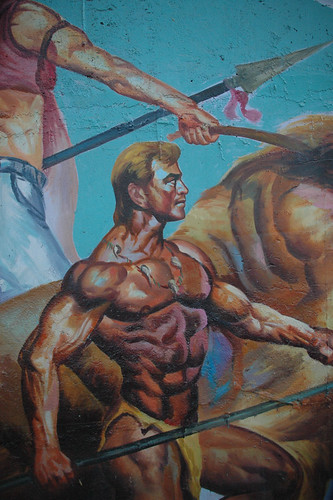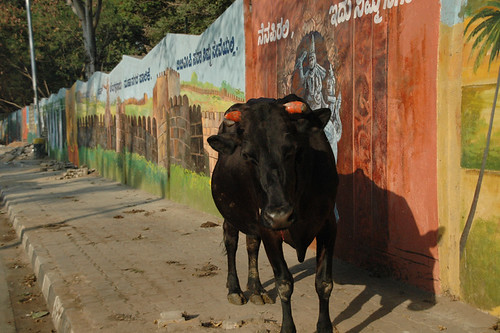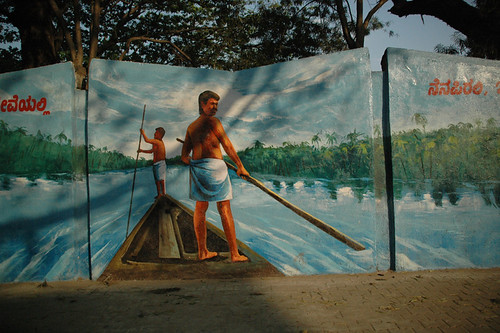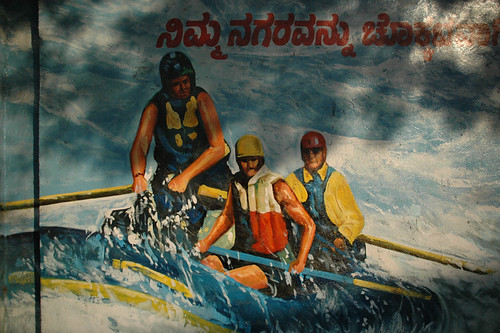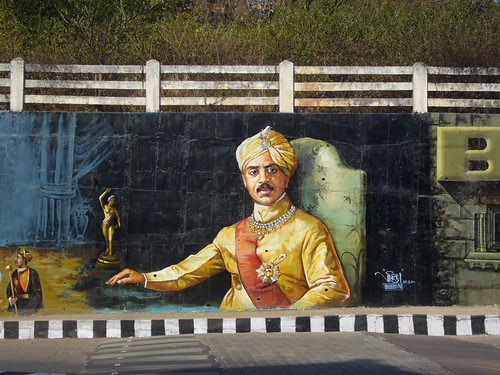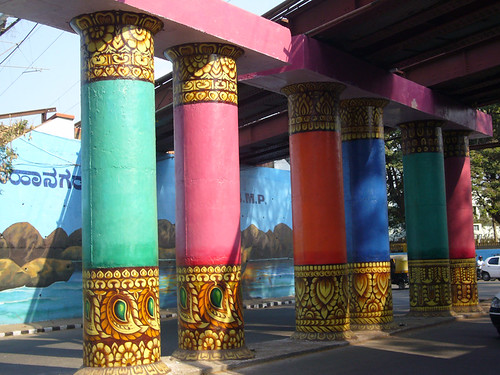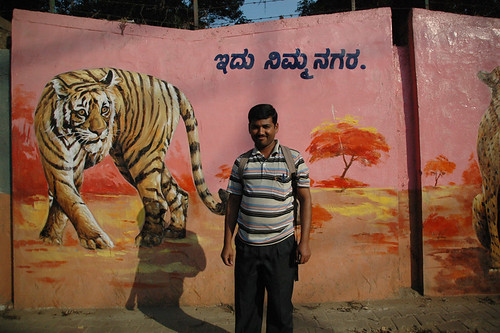Wednesday, 4:38pm
8 September 2010
Paint the city clean
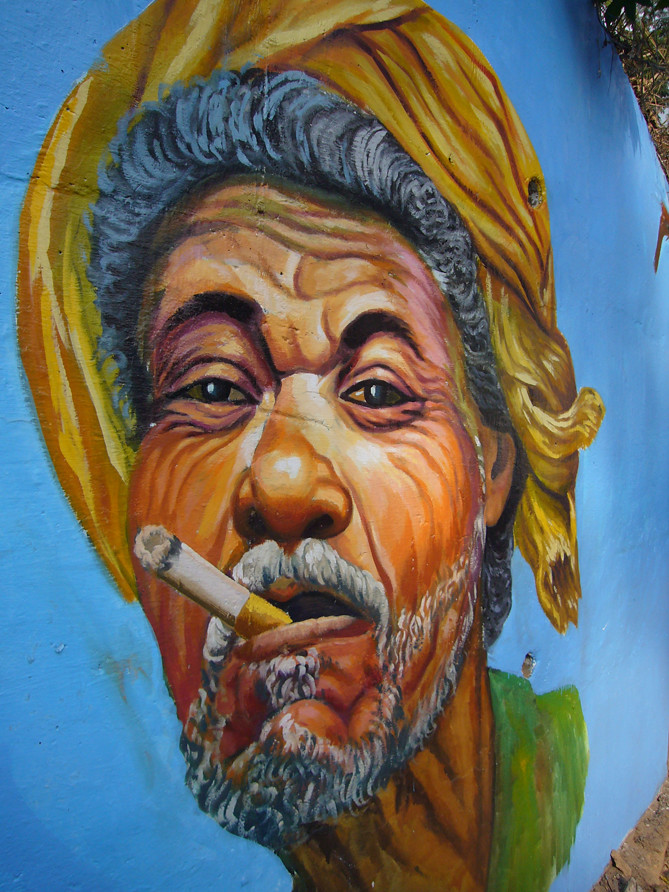
Officially sanctioned street art on the thoroughfares of Bangalore

Change is written on the walls of urban India – and nowhere is this more pronounced than in the IT capital of Bengaluru (aka Bangalore), writes Julie Fairless.
In an attempt to ‘beautify’ this sprawling city of 5.5m people, the council has employed more than 150 local artists to paint the walls of the main roads and thoroughfares in the theme of Vaibhava (Glory) Karnataka (the name of the state).
Local artists clean up after a busy day – they get paid about 350 rupees per day.
Top: smoking guy, a self portrait of one of the craftsmen.
This initiative is not just ‘beautification’ – it serves a practical function. By decorating the walls officials want to ‘make people think twice before dumping garbage, urinating, spitting or defacing the walls.’
Vernacular images of brightly coloured Maharajas on elephants jostle for wall space with temples and tigers. A drive through the streets of the busy city has been turned into an ethnographic study that documents local culture, music, dance, flora and people.
Artists are allocated individual wall space and given a theme to create each section of this expanding narrative – the walls around Lalbagh Botanical Gardens depict flowers and plants while the main airport road shows planes jetting off to tourist destinations. The areas around schools and colleges are painted with messages that are ‘educative and patriotic’.
Detractors of the initiative have called the scheme an ‘aberration’ and describe the aesthetic as ‘violent and kitsch’ claiming that the project encourages ‘only one kind of art’. Others have called for the paintings to be removed in underpasses and tunnels, claiming that they create optical illusions that distract drivers and cause accidents.
Here’s a selection of wall paintings that caught my eye.
Holy cow, it’s a standard street scene from Bangalore, footpath under repair, cows wandering the streets and fresh paint on the city walls.
This is a typical scene from Kerala Backwaters – lungi-wrapped fisherman push their way through shallow waters.
Supporting pillars for a railway line are decorated in bright colours – excellent detail on the column tops.
Whenever a camera is taken out in India, someone wants their photo taken!
Eye magazine is available from all good design bookshops and at the online Eye shop, where you can order subscriptions, single issues and back issues.
The summer issue, 76, out now, is a music special – full contents here, and you can see a selection of visual details on Eye Before You Buy on Issuu.


